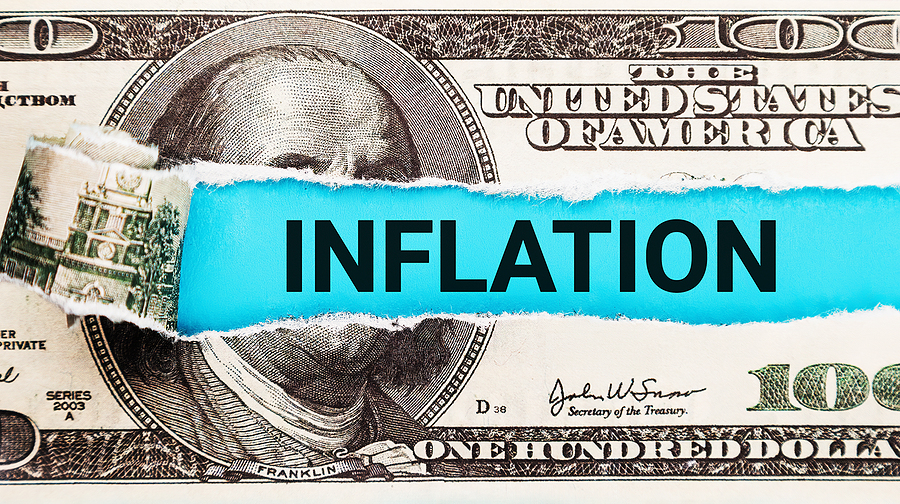While there may be a lot of talk about inflation, there’s only one thing that matters to you: the impact on your personal finances.
Let’s take a closer look at inflation, from a basic definition to the way it’ll impact your money now and in the future.
Inflation is a sustained increase in the general price level of goods and services in an economy over a period of time. When prices rise, each unit of currency buys fewer goods and services; consequently, inflation reflects a reduction in the purchasing power of money – a loss of real value in the medium of exchange and unit of account within an economy.
Inflation can have a significant impact on your money, as it can cause the value of your savings and investments to decrease over time. For example, if you have $100 in a savings account and the inflation rate is 2%, the purchasing power of that $100 will decrease, so it will only be able to buy $98 worth of goods and services the following year. This means that if you want to maintain your standard of living, you will need to save more money to afford the same goods and services.
Inflation can also make it more difficult to plan for the future, as it can be difficult to predict how much prices will rise. This can make it hard to budget and save for major expenses, such as retirement or a child’s education. Additionally, inflation can make it harder for people on fixed incomes, such as retirees, to make ends meet, as their incomes may not be able to keep pace with rising prices.
Another impact of inflation on your money is that it can make borrowing more expensive. As inflation rises, interest rates tend to increase as well, making it more expensive to borrow money. This can make it harder for individuals and businesses to access credit and can slow economic growth.
Additionally, if you have a variable-rate loan, such as a mortgage or a credit card balance, your monthly payments can increase as interest rates rise, which can make it more difficult to make ends meet.
Inflation can also affect the value of investments. For example, stocks and bonds may not perform as well during periods of high inflation. This is because companies’ revenues and profits may not be able to keep pace with rising prices, which can lead to lower stock prices and lower returns on bonds.
To protect against the negative effects of inflation on your money, there are several strategies you can consider.
One strategy is to invest in assets that have the potential to appreciate, such as stocks and real estate. These types of investments may be able to keep pace with or even outpace inflation, which can help preserve your purchasing power over time. Another strategy is to consider investing in assets that pay dividends or interest, such as bonds or high-yield savings accounts. These types of investments can provide a steady stream of income that can help offset the effects of inflation.
Another strategy is to consider hedging against inflation by investing in inflation-protected securities, such as Treasury Inflation-Protected Securities (TIPS) or I Bonds. These types of investments are designed to protect against inflation by adjusting the principal and interest payments based on changes in the Consumer Price Index (CPI).
A third way to protect against inflation is to diversify your investments and to have a balanced portfolio. By having investments in different assets such as equities, fixed-income securities, real estate, and commodities you can mitigate the impact of inflation on your money.
In conclusion, inflation can have a significant impact on your money, affecting the value of your savings and investments, making it more difficult to plan for the future, and making borrowing more expensive. To protect against the negative effects of inflation, it is important to consider a variety of strategies, such as investing in assets that have the potential to appreciate.
Are you concerned about inflation? What steps are you taking to protect your money and maintain stability within your financial life?


Related Posts :
Try These Tips for Protecting Against Inflation